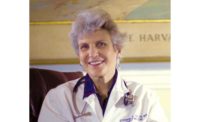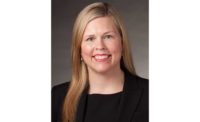Name: Traci Hanegan
Age: 46
Title: Principal, Coffman Engineers Inc.
Educational Experience: B.S. and M.S. mechanical engineering, University of Idaho.
Professional Credentials/Accreditations: P.E. in several states, ASHRAE Fellow, LEED AP, and ASHRAE Certified Healthcare Facility Design Professional (HFDP).
Organizational Affiliations/Achievements/Awards: ASHRAE fellow member. Involvement in ASHRAE includes society board of directors, 2006-2009; past-chair, ASHRAE Technical Committee (TC) 9.10 Laboratories; vice-chair, ASRHAE TC9.6 Healthcare Facilities; chair, ASHRAE TC9.6 Infectious Diseases Subcommittee; past chair, society membership promotion committee; ASHRAE Distinguished Service Award; regional award of merit, chapter service award, and engineer of the year; first place regional technology award for Existing Healthcare Facilities – St. Luke’s Rehabilitation Institute; assisted with the rewrite of the ASHRAE Design Manual for Hospitals & Clinics, 2nd Edition and the ASHRAE Design Guide for Laboratories, 2nd Edition; associate member of the American Society for Health Care Engineering of the American Hospital Association (ASHE); Washington State Society of Healthcare Engineers (WSSHE); and an American Institute of Architects (AIA) Allied member.
When did you fall in love with engineering?
I fell in love with engineering through an internship at a pulp mill after my junior year in college. I climbed inside a 10-story boiler during shut-down, watched contractors weld and install stainless steel piping in a caustic heating system I designed, and solved a pumping problem that had been shutting down the plant repeatedly. It was cool stuff that mattered.
What has been the most rewarding aspect of working in the skilled trades?
I really like that the work I do helps further the work of others. For example, the healthcare projects I design are making a difference in the quality of care provided for the patients and for the environment that the health care workers spend time in. I enjoy reflecting on that success.
What challenges do women face in this profession? Why aren’t there more women in engineering?
I was fortunate enough to avoid a lot of challenges because I am a woman – I think there were many women in science and engineering who were very talented that helped pave the way. I always felt more of a challenge because I always looked a lot younger than I was and it took some time to earn the trust of my clients. Once I did, however, I found them to be very loyal and at times almost proud of me being on their team.
Describe what your job entails on a day-to-day basis.
These days it’s a pretty good mix of tasks: general HVAC/piping/plumbing design, field work to look at existing conditions on remodel projects, working with other team members (such as structural, electrical, civil, fire protection, and architecture) to coordinate our work, preparing materials to pursue specific projects, attending interviews for new work, attending and sometimes presenting at conferences, writing fee proposals, reviewing contracts, leading our mechanical design team, and reviewing drawings and specs. I also serve on our corporate board of directors and work with the other partners in my office on business and office culture decisions.
What drives/motivates you every day?
People are counting on me, and I hate to disappoint. The stakes are high in terms of public health, owner expectations, budgets, and schedules. I’m also competitive, so I enjoy pursuing new work.
Describe the proudest moment in your career. I was proud to have been on the ASHRAE board of directors the year, and we voted to change the trajectory on energy efficiency gains for future updates to ASHRAE Standard 90.1. At the time it was an aggressive stance, and it will positively impact the condition of our entire planet for a long time.
What remains on your engineering bucket list — what do you aspire to do that you haven’t done yet?
I aspire to get the codes changed to require ante rooms on airborne infection isolation rooms and to fully understand and share with others the importance of good indoor air hydration on our health. I also want to design the research facility that we bring Mars rocks back to.
What’s one thing no one knows about you?
How many times a day I pray for guidance to do the right thing or make the right choice. This business of consulting engineering is not easy, but that’s part of what makes it fun.
List any mentors who’ve helped you succeed and describe exactly how they’ve shaped your success.
I’ve been blessed with so many mentors; here are just three to highlight.
-
Ed Langebartel was a mentor of mine for most of my career. Sadly, we just lost him to lung cancer a few months ago. We carpooled together and would talk about design ideas, project challenges, politics, and music. Ed answered so many of my questions, helping me to avoid a lot of mistakes, and he gave me an example of how to be an engineer that keeps trying new things instead of growing stale. Ironically, when he left the firm for a few years, I took over the projects we were doing together and that provided me with more responsibility and growth in my career. I became a principal and later hired him back.
-
Larry Neal was my mentor while interning at a pulp mill during college for a couple of summers. He taught me some secrets of prioritizing tasks, working with C-suite folks on capital project budgeting and big picture projects, and the value of putting in extra time early on in my career to master skills sooner.
-
Dave Ruff was my coworker, then my boss, then my partner, and now our company president and CEO. I have learned a lot from him about working with people and about leadership skills. Technical work can be challenging, but it is the people side that usually requires the most effort in order to do well. Dave has been a great sounding board for me as I face important conversations with clients, contractors, employees, and contractors. It’s easy to just get angry or frustrated at times, but that’s not how I wanted to communicate with people. Relationships matter to me, and Dave often provided me with suggestions on how to achieve a good outcome for everyone involved.
What does the future hold for you?
You’ll still find me doing design work, keeping engaged with people and organizations to further our knowledge of how building systems impact our health, and mentoring the next generation. As Yoda said, “We are what they grow beyond.”
What advice do you have for prospective female engineers considering entering the field? Show initiative, seek out people to mentor you in different areas (leadership, technical expertise, marketing, etc.), say “yes” to opportunities, make commitments, be enthusiastic, work hard, and cut yourself some slack when it’s not all perfect. Learn how to influence people through your expertise and by being authentic, not through your status or being heavy-handed.




